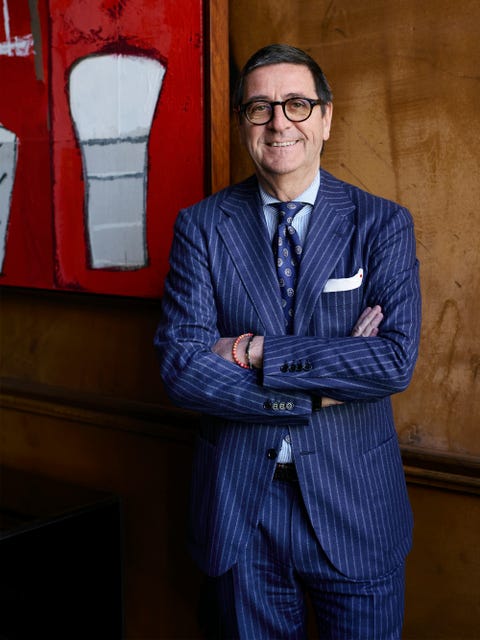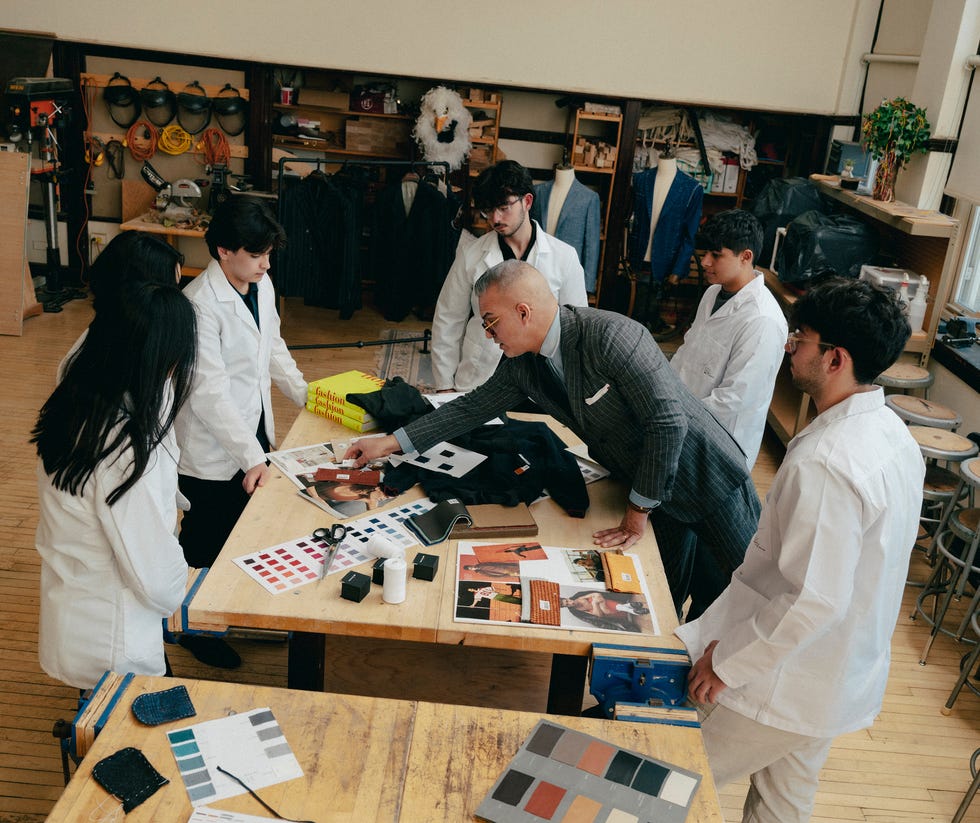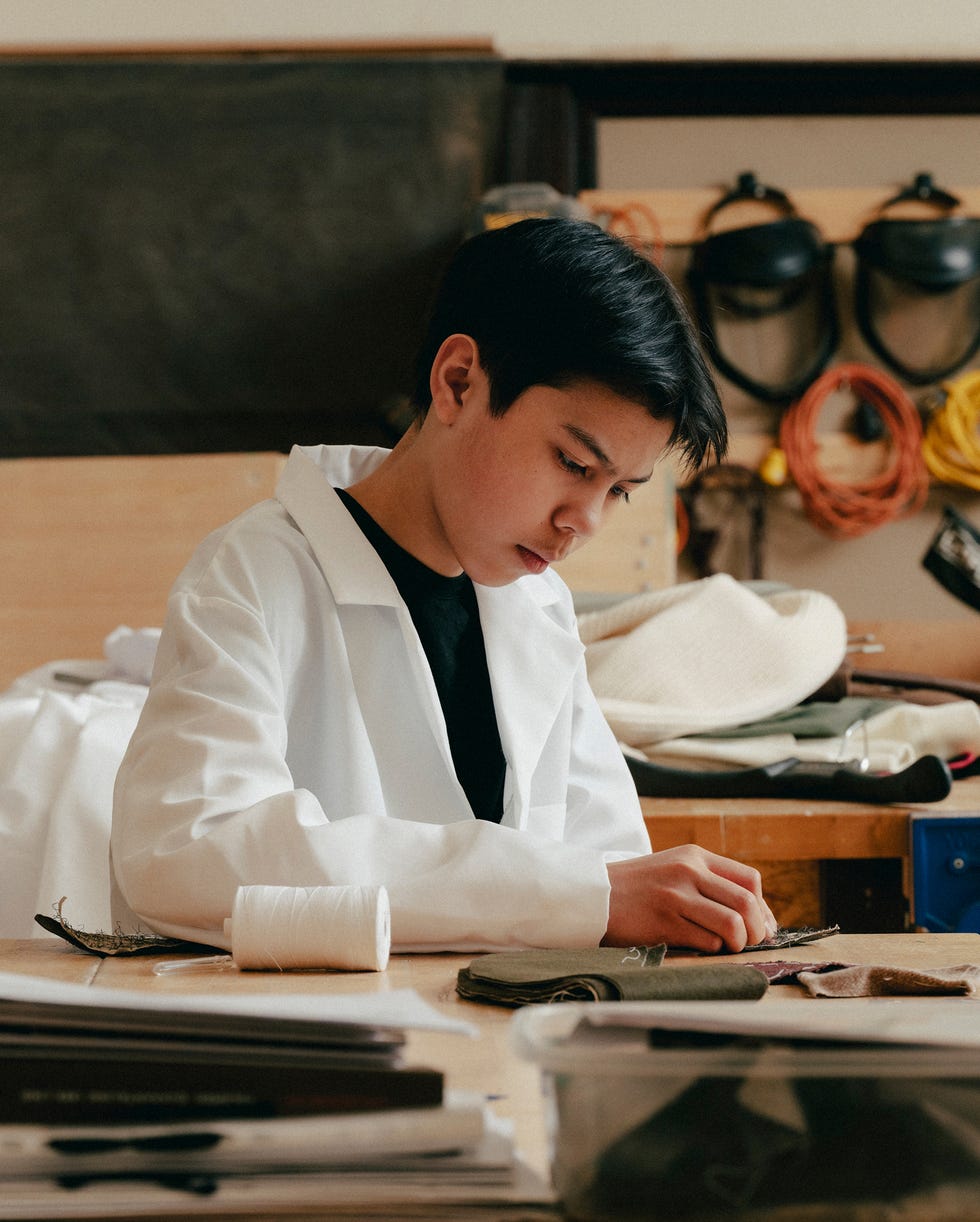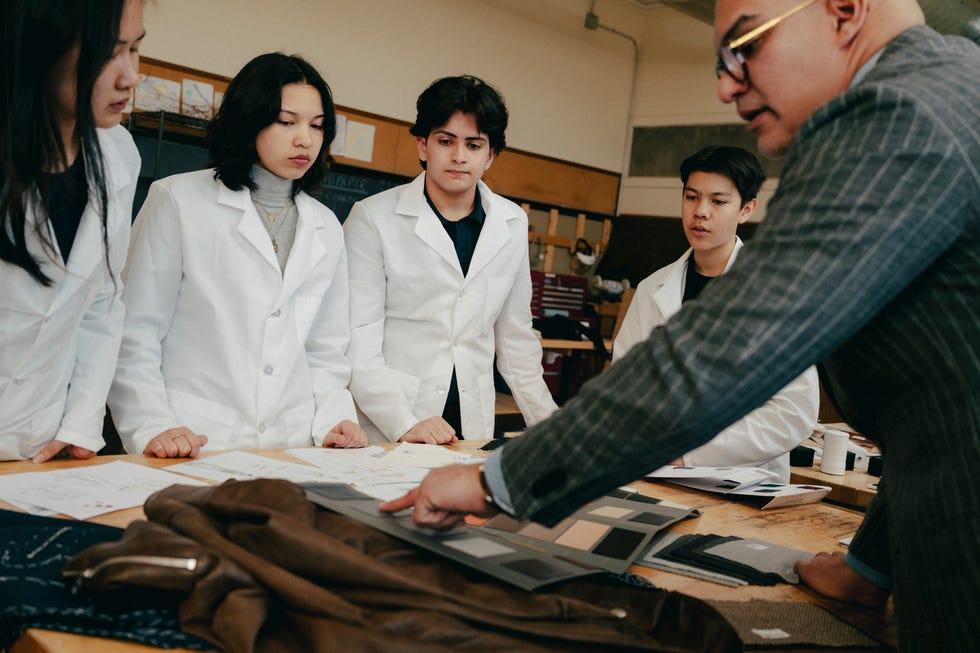Does the Future of Italian Tailoring Lie in ... Chicago?


It’s a far cry from the tailoring ateliers of Naples to suburban Chicago. But for Kiton, one of Italy’s leading makers of unapologetically luxurious menswear, there’s a valid link.
Which is exactly why the label is doing something unprecedented. Instead of sitting back and hoping the next generation of skilled tailors finds its way to the Neapolitan brand, Kiton created its own feeder system. At Chicago Waldorf School, in a course aptly dubbed the Art of Tailoring, high schoolers are learning the finer points of making fine clothes. And if they choose to pursue it as a career, there’s a chance they can continue that journey in one of the world’s foremost tailoring capitals.

Kiton CEO Antonio De Matteis.
“We believe artisanal excellence knows no borders and that the value of savoir faire can be passed on wherever there is talent and passion,” says Antonio De Matteis, Kiton’s CEO. “Chicago represents a bridge between past and future: a city with deep artisanal roots—thanks in part to the legacy of Italian immigrants—and at the same time, a dynamic and receptive market for bespoke luxury.”
Kiton’s North American director of wholesale made-to-measure, Victor de Leon, lives in the city. His children attend Chicago Waldorf School. One day, sitting in on a second-grade handwork class—Waldorf schools often eschew a traditional curriculum in favor of a holistic cocktail of intellectual, creative, and practical skills—he was struck with an idea.
“I was watching seven-year-olds sewing and weaving and knitting socks and gloves and hats,” he says. “And they were doing it with such ease, like little tailors. It made me think.”

Kiton’s North American director of wholesale made-to-measure, Victor de Leon, with a group of students.
With the school’s principal and the eager support of De Matteis, de Leon hatched a plan to take those handwork classes to another level with high school kids. And so, since September 2024, de Leon has been presiding over the Art of Tailoring, which was conceived to instill craft-based skills direct from the tailor’s shop.
Students learn how to pad-stitch the lapels, construct floating canvases, and create the signature Neapolitan curved breast pocket. It’s pretty specific stuff. But for de Leon, fostering these manual creative skills also has a broader purpose.

“Bringing in someone like me, someone who is working and living in the luxury industry, gives them an insight to what the fashion world can be to them,” de Leon says of his students. “It’s an eye-opener.”
“The Waldorf has a very unique curriculum,” he says. “Students there can feel like they live in a creative bubble. Bringing in someone like me, someone who is working and living in the luxury industry, gives them an insight to what the fashion world can be to them. It’s an eye-opener.”
To that end, the course isn’t solely about craft. “I’m also trying to open them up to branding, marketing, design, and graphics,” de Leon says.

Kiton plans to offer a select few graduates of the class a chance to train and work at its atelier in Naples.
There’s an upside for Kiton, too: the chance to find the next generation of tailors on American soil. Upon graduation, Kiton plans to offer one, two, perhaps even three students the chance to take the experience further and deeper by training in Kiton’s Naples tailoring atelier for three years. Those students will immerse themselves in the world of Kiton as well as Italian language and the culture of Italy’s most vibrant city.
Teaching a handful of high school kids about the finer points of tailoring may seem like a drop in the sartorial ocean. Yet even at this early stage, it is making waves in the luxury clothing business. Some of Kiton’s prime North American retail customers—men’s specialty stores like Mitchells in the Northeast and Harry Rosen in Toronto—are already considering the upside of hiring the first kid to come back home after they’ve completed the program.

“Tailoring is an art that requires time, patience, and precision,” says Kiton CEO Antonio De Matteis. “I want them to understand that learning a craft can be a solid opportunity for their future, especially in a world where the demand for authentic savoir faire is stronger than ever.”
Because while the skills Kiton will impart are more readily associated with fully bespoke operations, they’re also—just as they are at Kiton, where handmade is still a vital part of ready-to-wear—an increasingly important part of customer service for high-end retailers. To have home-grown, Naples-trained tailors on hand can only be good for business.
“I expect the students to approach this experience with passion and dedication,” says De Matteis. “Because tailoring is an art that requires time, patience, and precision. I want them to understand that learning a craft can be a solid opportunity for their future, especially in a world where the demand for authentic savoir faire is stronger than ever.”
esquire





